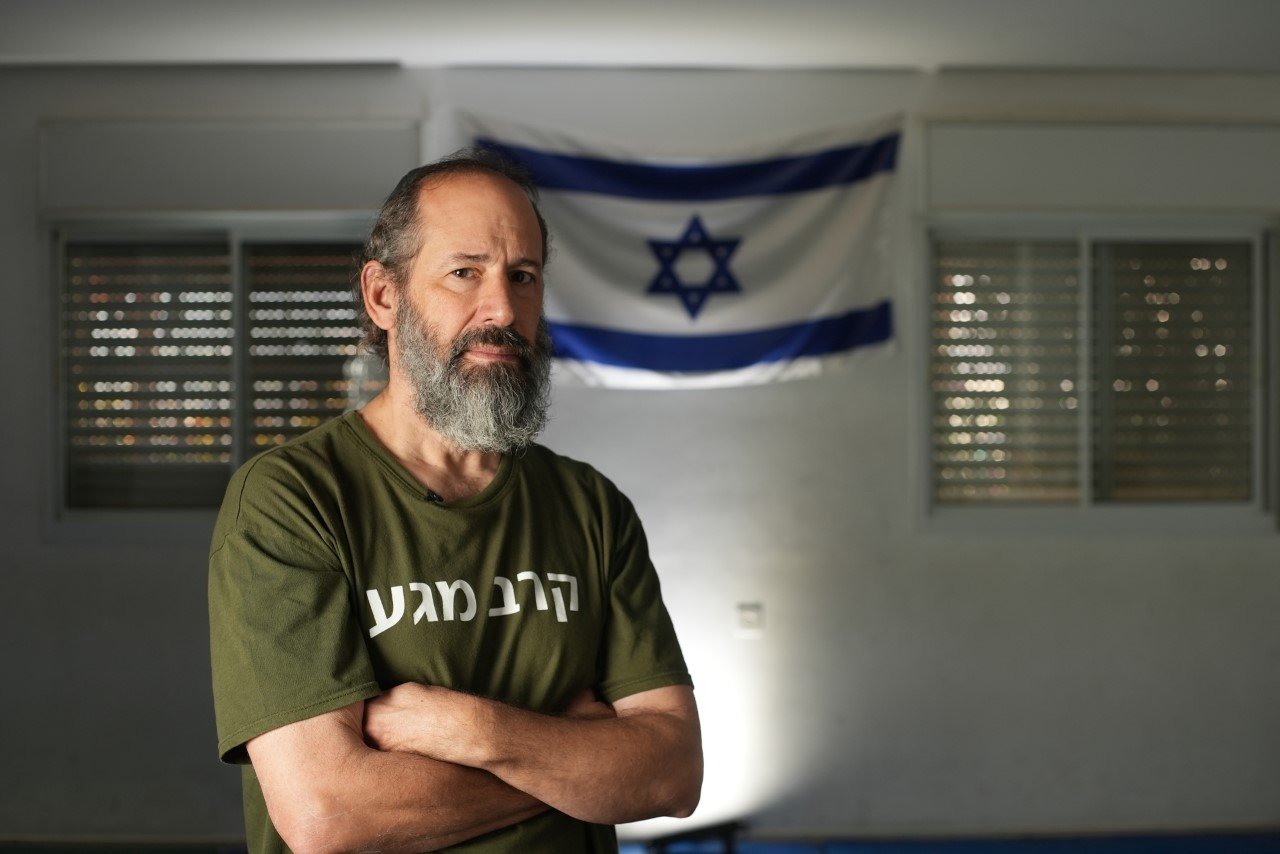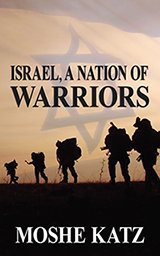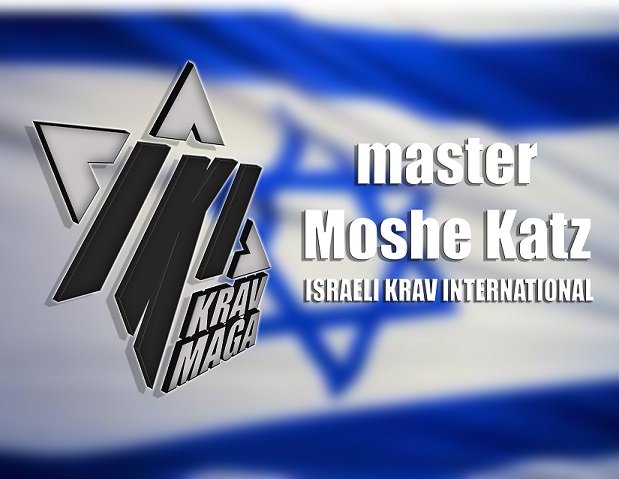- Home
- Krav Maga Blog
- Krav Instructors
- Train in Israel
- Tour Train Israel
- Krav Shop
- DVD
- Kickboxing
- IKI Near Me
- Seminars
- IKI Membership
- On-Line Training
- Krav Maga Training
- Testimonials
- History Krav Maga
- Instructors Page
- Past Blogs
- Spanish
- Italian
- Certification
- Contact
- Holland Seminar
- Vienna Seminar
- Poland Seminar
- Italy Seminar
- Belt Requirements
Strength Through Adversity
BY MOSHE KATZ
CEO
ISRAELI KRAV INTERNATIONAL
October 21, 2024, Israel
We are currently celebrating the weeklong holiday of Sukkoth, or the Feast of Tabernacles. It is basically an ancient harvest feast, an ingathering of the crops, but there is much more to it than that. There are spiritual and historical components as well.
Sukkoth is preceded by the Jewish New Year, the Ten days of Repentance and Yom Kippur, the Day of Atonement. These are called the High Holy Days, or the Days of Awe, and it is anything but party time. Our New Year is a day devoted mostly to prayer and seeking forgiveness. We feel we are about to be judged by the Judge of all Judges, the Divine Holy One. This commences a period of Ten days of Repentance in which we have to do a personal accounting, like tax season, but not with money but with our actions and words: have we offended anyone this year? Is there someone we need to make amends with? did our actions hurt someone's business, and so forth. Before the Day of Atonement, we must go through the painful and humbling act of asking others for forgiveness. This is not a "ritual" but a serious matter where one must approach another and humbly admit their failures and sincerely ask for forgiveness. Only then can we enter into prayer and speak with God, for God does not have the power to forgive that which you have done to another. Think about that! But this begins earlier with a month of forgiveness with some communities or a week with others, where we are expected to rise at 4 am, go to the synagogue and recite forgiveness poetry and prayers. All this culminates with the Day of Atonement which is a fast day, no eating or drinking, spending most of the day in the synagogue praying.
So after all these "Days of Awe", many see the Feast of Tabernacles as a reward, an "easy" holiday, a time of rejoicing. But it is not quite so. We are required to eat our meals and spend as much time as possible, in the Sukkoth, the makeshift huts. These are reminders of our ancient agricultural past when we would spend time out in the fields, gathering the crops and staying overnight in these huts rather than traveling back home. It also has historical significance as a reminder of our days of wandering through the desert from the land of Egypt to the Land of Canaan/Israel. But is also has spiritual symbolism, the fragile and tenuous nature of the hut, the Sukkah, is meant to remind us of our own fragility, our own weakness and vulnerability.
We are reminded of the illusions of life. We may build strong homes, fortresses, of brick and steal, but ultimately these can fail, as we saw on October 7, 2023. All man's efforts, his bricks and morter, his hi-tech inventions, all can fail. Sukkoth reminds us of our true weakness. Sukkoth reminds us to be humble and not to trust in our man-made defenses.
But I believe there is more. I believe there is an additional, deeper, message, and this is what I wish to share today. Many Jewish holidays mark (not really "celebrate") dark periods in Jewish history such as the destruction of our holy temples, massacres throughout the ages and various calamities that befell the Jewish people. Why do we mark these days? Why not follow modern advice and simply "move on? Why dwell on the past, and keep alive such dark and painful memories? Is there something wrong with us Jews?
On the Fast day of the ninth of Av (the Hebrew calendar), we read horrifying accounts of events that took place over 2500 years ago, long before any person alive today was born. Why? Why relive this pain year after year? Why do I study Jewish history which is immensely painful?
The answer why we mark these days is to appreciate life and to have a true forward moving focus. It is not negative, on the contrary, it is positive but realistic positive, not the gobbledygook modern "Positivity" which promotes bad eating habits and bad lifestyles and "acceptance" of things which should by all logical accounts be utterly rejected. On the Feast of Tabernacles, we express our Gratitude for a bountiful crop. This means we do not take it for granted. In modern terms, for years we took our business for granted, for years I was flying around the world teaching seminars, for years we had our Tour and Train program where students came from all over the world to train with us. We reached the point where we had to rent a full bus! For years I had regular students from all over the world as part of our regular training group. And then, boom! Crash and Burn, like the hut we use on the Feast of Tabernalces/Sukkoth which can be knocked down by one strong wind, everything collapsed. Suddenly there were no flights, as it is written about ancient Jericho, none shall enter, and none shall leave. Coronavirus regulations stopped our lives. All that we took for granted was over. And then, just as that began to dissipate and business life returned to close to normal, boom, Crash and Burn, not only a brutal attack from our local enemies but even higher institutions of learning in the great USA and leading politicians turned against us! Genocide of the Jews became a current topic, acceptable "depending on the context". The great bastion of democracy, under false leadership, turned against the Jews once again. Europe we had little hope for.
And I think of the little hut, a strong wind can knock it down. I think of how we express our gratitude for the bountiful crops because we need to remember that we cannot take this for granted! We need to remember that bountiful crops are not a given. Our lives are blowing in the wind, like a shaky leaf on a tree.
Our holidays that mark tragic events are not to make us feel depressed, it is to remind us of the reality of life. It is to make us stronger! Our Temple was destroyed but we rebuilt it. Our people were scattered all over the world, but we remained united and many of us have returned home. We were attacked in our sleep, but we fought back.
Our dark holidays are there to remind us to be strong, to be resilient, to be determined to succeed. Let every person whose business failed, take heart, you can rise up again, let every person whose life fell apart take heart, you can rebuild your life. It is never too late. This is the message of the Jewish holidays, you can push us down, but we will rise up again and say, Is that all you got?
During this holiday of Sukkoth, during this Feast of Tabernacles, many of us are going through very trying times, but the holiday reminds me of our strength. Strength through adversity. In Israel, when troubles arise, people say...we survived Pharoah of Egypt, we shall survive this too. Take heart!

Moshe Katz, 7th dan Black Belt, Israeli Krav Maga. Certified by Wingate Institute. Member Black Belt hall of fame, USA and Europe.
Understand the Israeli Fighting Mentality - Israel a Nation of Warriors by Moshe Katz

What is the cultural background of Krav Maga? What makes it unique? What makes the Israeli military so effective? Why are Israeli security systems used all over the world?
What are the Biblical origins of Krav Maga and who was the first Krav Maga instructor?
What weapons and military strategies did our Biblical ancestors use?
How has Krav Maga developed in Israel and what are its goals?
All that and more in this unique book.
Start Your REAL Training TODAY
Or is someone coming to save you?
IKI Krav Maga online distance training - Leading to ranks and certification.
Tour and Train Israel Experience
Personal Training - If you are interested in personal Krav Maga training please contact us on the form below.
